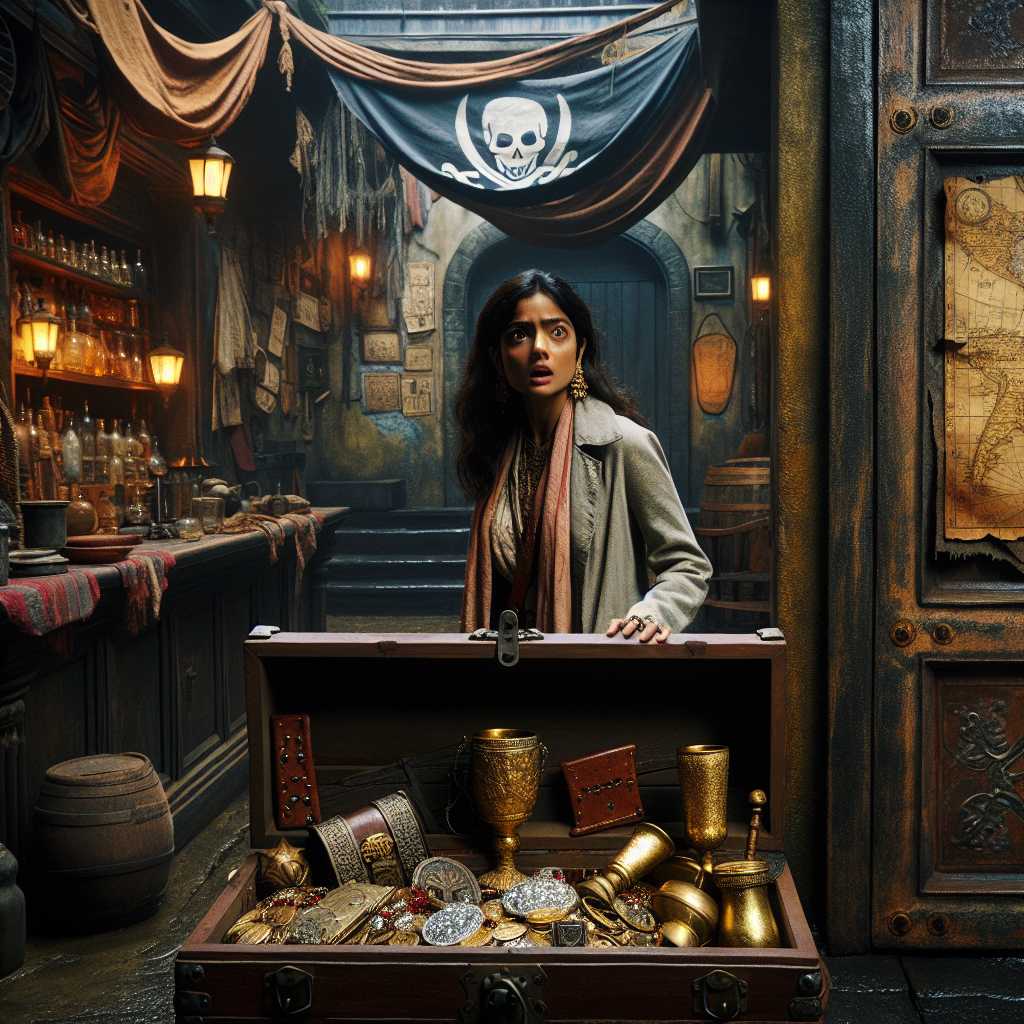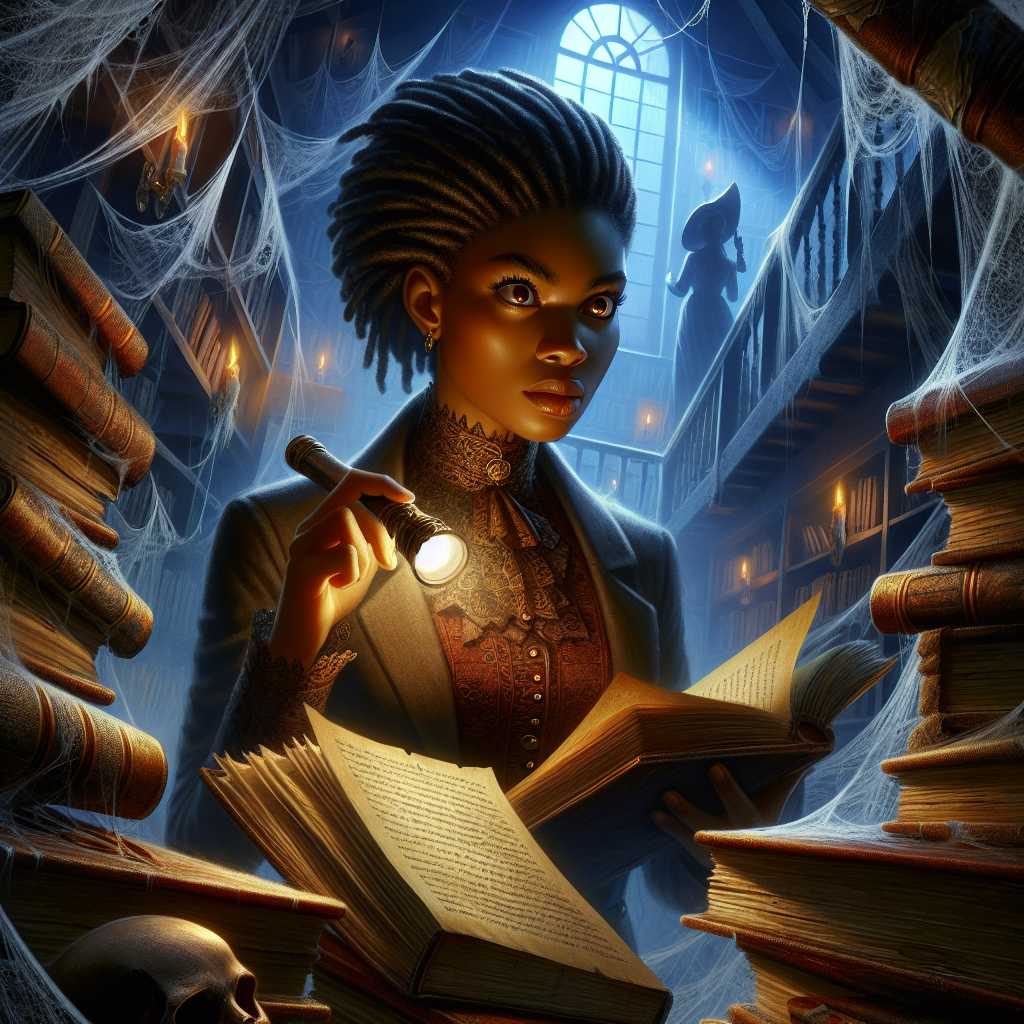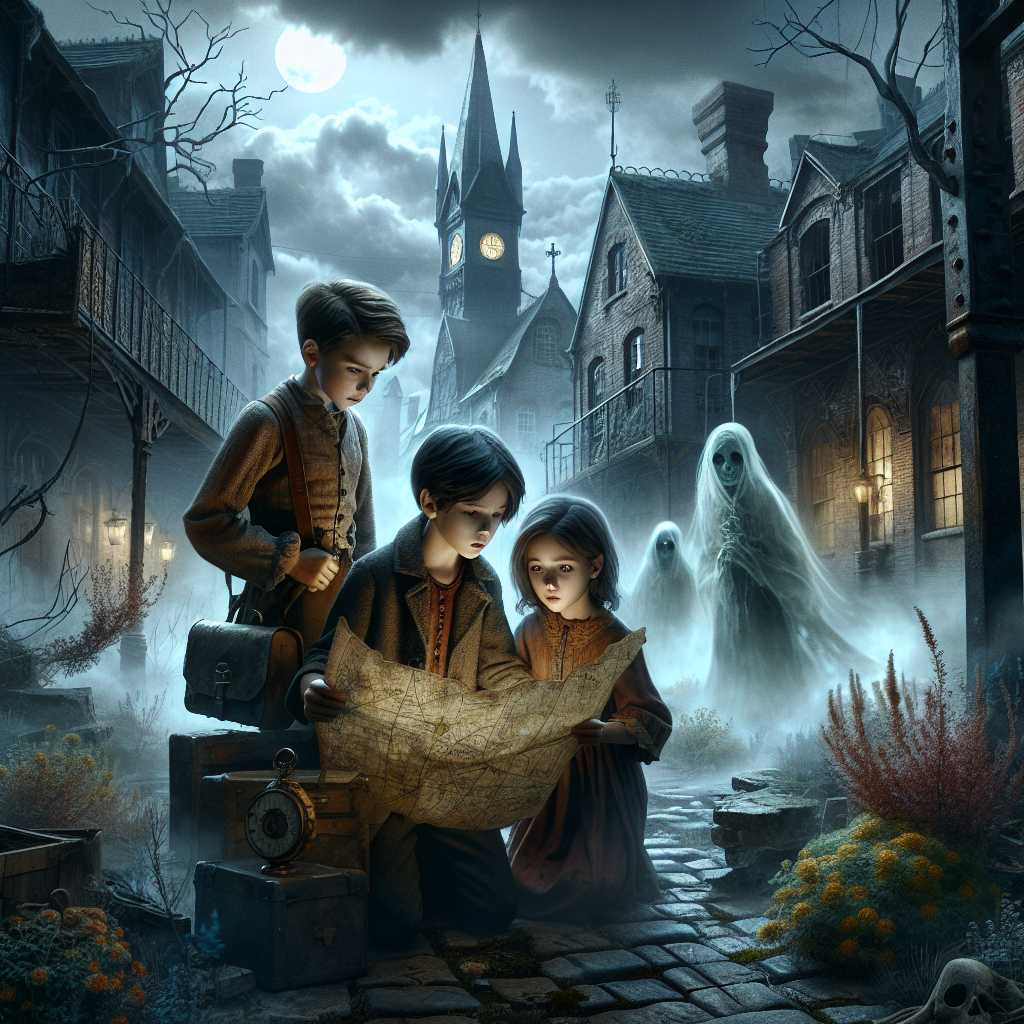
In the heart of bustling New Orleans, where the echoes of jazz waltz through the cobblestoned streets, there stood an enigmatic bar named The Velvet Raven. The bar was a beloved haunt of locals and tourists alike, known for its moody atmosphere and heady mix of spirits. Yet, there was one patron who would remain in the whispers of conversation for years to come: Mr. Reginald Blackwood.
Reginald was a gentleman of fine taste and mysterious mannerisms. He was well-respected in his circle, but rumors swirled like the blue smoke that lingered in the bar. Some said he was a retired operatic tenor; others claimed he was an exiled count. Alas, nobody could claim to know his true past.
On a sultry summer evening, Reginald entered The Velvet Raven for the last time. He took his customary seat in the shadowy corner of the bar, ordered his usual cognac, and appeared to settle in for an evening of quiet reflection.
It was later in the evening, as the clock chimed its midnight song, that the bartender noticed Reginald was unusually still. Moving to rouse the man, he was struck by an unsettling silence. Reginald Blackwood had expired, his eyes fixed on a mysterious note clutched in his hand.
"The longest shadows beckon the night,
Secrets buried shall ignite,
The velvet raven descends in flight."
The note bore no signature but was adorned with the silhouette of a raven, almost as if it had been stamped onto the paper. In the days that followed, the city hummed with speculation. Theories flitted around like restless moths, yet little progress was made in determining the circumstances of Reginald's demise.
Enter Detective Eliza Gresham, known for her razor-sharp wit and unstoppable perseverance. Eliza was a woman who lived for the thrill of the chase, and the case of Reginald Blackwood intrigued her. With her trademark leather-bound notebook in hand, she decided to start her investigation at The Velvet Raven itself.
"Tell me about Mr. Blackwood," she urged the bartender, a grizzled man named Hank, as she sipped on a cup of strong chicory coffee.
"Ah, the poor soul," Hank replied, polishing his glasses with a cloth. "He kept to himself mostly, but you could tell he was carrying a weight on those shoulders of his."
"Did he have any acquaintances? Anyone who stood out?" Eliza pressed.
"There was one man," Hank said after a pause, "name of Julius Scarborough. A poet, if you can believe it. They'd sit there for hours, talking in hushed tones."
With this new lead, Eliza set out to find Mr. Scarborough. The poet lived in an attic apartment on the edge of town, a garret teeming with books and manuscripts. Julius was a wiry man with eyes that seemed to see through to Eliza's very soul.
When confronted, Julius spoke freely. "Reginald was a man tormented by his past. He told me more than once he feared certain secrets would be unearthed. But I always thought it was just a poet's dramatics."
Eliza inquired about the enigmatic note, showing Julius the raven symbol. His face turned pale as parchment.
"I... I don't know about that," he stammered, eyes darting away. Eliza's intuition told her otherwise.
"You know where I can find more about this symbol, don't you?" she pressed, voice soft yet firm.
He sighed, shoulders drooping in resignation. "There's a bookshop on Chartres Street, run by an old woman named Madame Lisette. She knows about these things."
Eliza thanked Julius and made her way to the bookshop. The air inside was thick with the smell of parchment and dust. Madame Lisette was a kindly woman, wise and knowing, who seemed to have a preternatural understanding of what brought people into her store.
"Detective Gresham," Madame Lisette greeted, eyes twinkling with mischief. "I’ve been expecting you."
Eliza raised an eyebrow but was otherwise unperturbed. She showed the woman the paper with the raven symbol.
"Ah," Madame Lisette said, nodding sagely. "The Velvet Raven is more than a bar, it's a symbol. In local folklore, it represents the uncovering of long-hidden truths, whether for good or ill."
"And the note?" Eliza asked.
Madame Lisette smiled. "A riddle, my dear. It suggests that something buried away in shadows has been or will be revealed. Perhaps Mr. Blackwood knew more than he let on."
Eliza contemplated these words, and a plan began to form. She returned to The Velvet Raven after nightfall, seeking to delve into Reginald's cryptic message. There, she noticed an aging tapestry hanging over the brick fireplace that depicted a raven descending from the sky with its wings outstretched. Hidden beneath its threads was a small, locked compartment.
Inside the compartment, Eliza discovered a collection of letters, maps, and documents—proof of an old piracy operation and a treasure long thought lost to the sea. Reginald, it seemed, had trailed his ancestors back to their dastardly deeds.
By unraveling the mystery of the velvet raven, Eliza had exposed the truth that Reginald feared—an ancestral secret that would undoubtedly rewrite family histories. Yet, in the end, it was Eliza's revelation and not malicious intent that brought these secrets to the fore.
The city was abuzz with newfound stories of gold, piracy, and poetic souls. New Orleans sang of them, and they echoed as enduring jazz, the melody forever changed by a detective's pursuit of justice.










